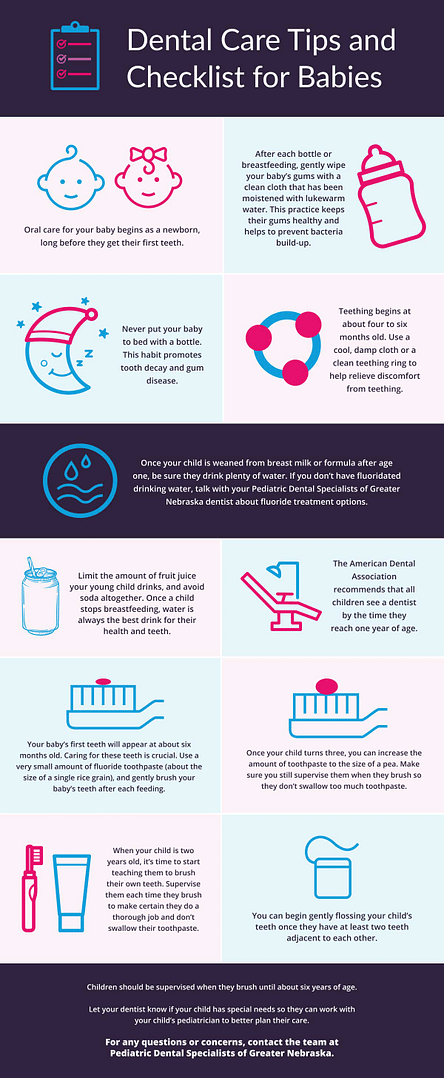
Dental Care for Babies and Toddlers: A Comprehensive Guide
Introduction
Establishing a foundation for optimal oral health begins in infancy. Dental care for babies and toddlers is crucial for preventing cavities, gum disease, and other dental problems later in life. This comprehensive guide will provide parents and caregivers with essential information on the importance of dental care, proper brushing techniques, dietary considerations, and when to seek professional help.
Importance of Dental Care for Babies and Toddlers
- Prevents Cavities: Cavities are the most common chronic disease in children. They are caused by bacteria that feed on sugars in food and drinks, producing acids that damage tooth enamel.
- Protects Gums: Gum disease, also known as gingivitis, is an inflammation of the gums caused by plaque buildup. It can lead to bleeding, swelling, and pain.
- Promotes Overall Health: Oral health is linked to overall health. Untreated dental problems can contribute to systemic infections, heart disease, and diabetes.
- Establishes Good Habits: Early dental care helps children develop good oral hygiene habits that will last a lifetime.
Proper Brushing Techniques
- Start Early: Begin brushing your baby’s teeth as soon as they appear, even if it’s just a few.
- Use a Soft-Bristled Brush: Choose a brush with soft, rounded bristles that won’t damage delicate gums.
- Use a Pea-Sized Amount of Fluoride Toothpaste: Fluoride helps strengthen tooth enamel and prevent cavities.
- Brush Gently: Hold the brush at a 45-degree angle to the gum line and brush in small, circular motions.
- Brush Twice a Day: Brush your child’s teeth twice a day, once in the morning and once before bed.
Dietary Considerations
- Limit Sugary Foods and Drinks: Sugary foods and drinks provide fuel for cavity-causing bacteria. Limit your child’s intake of candy, soda, juice, and other sugary treats.
- Offer Healthy Snacks: Provide your child with healthy snacks such as fruits, vegetables, and whole grains.
- Avoid Sippy Cups with Juice: Sippy cups filled with juice can lead to "bottle rot," a condition that causes severe tooth decay.
When to Seek Professional Help
- First Dental Visit: Schedule your child’s first dental visit within six months of their first tooth erupting or by their first birthday.
- Regular Checkups: Take your child for regular dental checkups every six months.
- Signs of Dental Problems: Seek professional help if you notice any signs of dental problems, such as:
- Cavities
- Gum bleeding
- Swollen or red gums
- Pain or sensitivity
- Bad breath
Additional Tips for Parents and Caregivers
- Set a Good Example: Children learn by watching their parents. Brush and floss your own teeth regularly to demonstrate good oral hygiene habits.
- Make Brushing Fun: Sing songs, play games, or use a timer to make brushing more enjoyable for your child.
- Be Patient: It may take time for your child to get used to brushing their teeth. Be patient and encouraging.
- Avoid Sharing Utensils: Sharing utensils can transfer bacteria from your mouth to your child’s.
- Use a Pacifier with Caution: Prolonged use of a pacifier can interfere with proper tooth development.
- Don’t Ignore Thumb Sucking: Thumb sucking can also affect tooth development. Encourage your child to stop sucking their thumb by age 4.
Conclusion
Dental care for babies and toddlers is essential for maintaining optimal oral health throughout their lives. By following proper brushing techniques, limiting sugary foods and drinks, and seeking professional help when necessary, parents and caregivers can help their children establish a foundation for a healthy and beautiful smile. Remember, early intervention and prevention are key to ensuring your child’s dental well-being.
